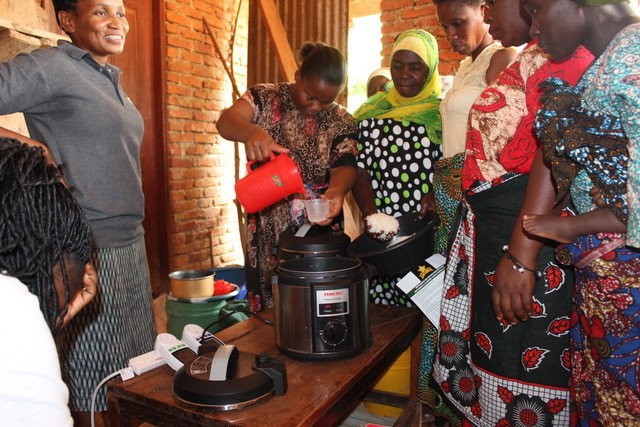Tanzania Market Assessment 2022 highlights potential for eCooking in Tanzania
- Category: E-cook reports
- Published: Monday, 29 August 2022 12:29
- Written by Webmaster
- Hits: 1944
By Anna Clements and Jacob Fodio-Todd (Gamos Ltd.).
The Tanzania eCooking Market Assessment 2022 offers strategic insight into the current state of electricity access and clean cooking in Tanzania, highlighting key opportunities and challenges, as well as offering recommendations and targeted interventions that could support the transition to electric cooking.
Despite Tanzania having made enormous progress on electrification with access doubling over the last decade, and setting ambitious plans for increasing power generation in  the pipeline, most of the population still rely on polluting fuels such as charcoal or wood as primary cooking fuels.
the pipeline, most of the population still rely on polluting fuels such as charcoal or wood as primary cooking fuels.
However, the assessment finds that among key market segments, such as urban charcoal users, there is large untapped potential for electric cooking, as these users usually pay for their fuel and have access to electricity, but do not yet cook with it.
eCooking is also likely become an increasingly important strategy to stimulate electricity demand as production increases, with projects such as Julius Nyerere Hydropower Station, due to come online this year, contributing to a surplus of power.
Research on eCooking in Tanzania, a MECS priority country, started in 2018 and since then, numerous electric cooking feasibility and research studies have shown that it is cost-effective to cook with electricity compared to other paid-for fuels. Results also show that eCooking is compatible with Tanzanian cuisine, desirable and convenient.
There are also initiatives underway or planned to explore business models, strengthen the market system and establish after-sales support.
In addition, in recent years the Tanzanian government and private sector has expressed interest in pursuing eCooking in the country, as neighbours such as Uganda and Kenya pick up the pace of the electric cooking transition by developing National eCooking and Clean Cooking Strategies.
The Tanzania eCooking Market Assessment 2022, authored by Anna Clements, with support from Jacob Fodio Todd, MECS Workstream Leads and Tanzanian partners TaTEDO, draws on desk study, findings from existing work, the knowledge and expertise of local teams and the WHO BAR-HAP modelling tool. The study follows a framework of analysis developed by MECS and EnDev to explore the market for electric cooking in several countries in Sub-Saharan Africa and South Asia (see the studies here). The market assessments are structured according to MECS transition theory of change (TToC) and its three interrelated dimensions: the enabling environment, consumer demand and supply chain. The analysis and key takeaways can be found in the report.

